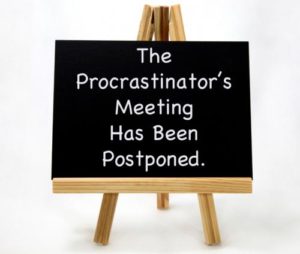Stop Saying “Yes” When You Need to Say “No”
At MAP, one thing our consultants hear from a lot of leaders—particularly when just starting to work with them—is that their stress levels are through the roof. A big reason for this is that over the years, these executives and managers have become “yes” people, agreeing to do anything and everything that even remotely relates to what’s within their realm of duty. But truly effective, respected leaders know how to self-regulate themselves. They say “yes” only to what’s vital to their leadership responsibilities and say “no” to what’s not—or even better, delegating what’s trivial to others whenever possible. As a leader yourself, if you move things off your lengthy to-do list and onto a to-delegate or to-stop list, you’ll find more time to focus on your leadership priorities. This practice can go a long way toward reducing or eliminating unnecessary stress.
Keep these simple tips in mind while making the transition:
1. Give Yourself The Permission To Change
A lot of times, we as leaders struggle with certain types of change, particularly if it’s beyond our comfort zone. This can be true for discontinuing or delegating certain tasks. It can also happen if we have to learn a new system so to improve efficiency, productivity, results, etc. But most of the time, any short-term pain is worth the gain—and you just have to trust that the effort to change will be worth it and, above all, that you and your long-term “sanity” are more than worth it. So do yourself the favor and don’t fight it. Go ahead and give yourself that permission to change—if you don’t do it, who will?
2. Drop The Guilt Around Delegating
When it comes to delegating, there’s really no reason to feel bad about giving people more responsibilities as long as you’re providing them with all the right resources and necessary training. In fact, what we’ve found is that when a boss challenges their people in this way, employees feel more grateful, valuable and worthy. When supported and held accountable for responsibilities that push them to grow, they also feel empowered. This leads to greater motivation, productivity and, eventually, results. In fact, your people might be far more motivated than you ever were at doing what you have now asked them to do. So let go of any guilt you might have around off-loading responsibilities from your plate onto theirs. Learn to see the value of developing and empowering your people in this way.
3. Use Free Time To Focus On YOU
“Burnout” is epidemic among leaders. We see it all the time, impacting their personal and professional health. When you start saying “no” more often and find more time on your calendar for other activities, the first thing I’d encourage you to say “yes” to is “me time,” whether it’s for overdue health checkups, exercise, meditation classes, family fun, your favorite hobby, or just an hour alone. Turn inward for a bit and use those precious minutes to find out what needs tending to so to restore and revitalize you.What are some things that you can start saying “no” to right now?



